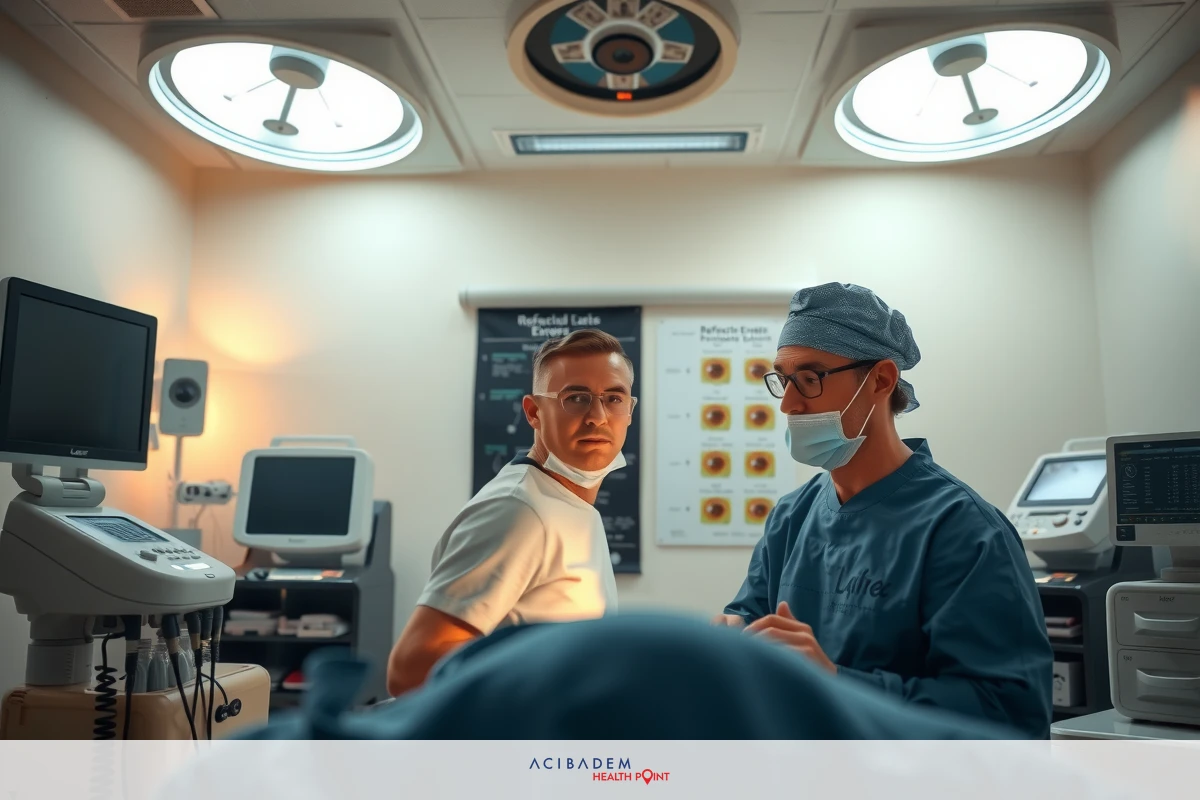Does it Hurt to Get LASIK Eye Surgery?
Does it Hurt to Get LASIK Eye Surgery? LASIK eye surgery, a common vision correction method, often raises questions about pain and discomfort. The intricate nature of the procedure may lead some to believe that it is painfully intense. Yet, a broader understanding shows us something different.
The actual process of LASIK involves reshaping the cornea using laser technology to correct refractive errors such as myopia or hypermetropia. A topical anesthetic renders the process virtually painless during its short duration – usually under ten minutes for both eyes! Postoperative sensations range from mild irritation to slight discomfort rather than pain per se.
Strong safety measures accompany this quick and transformative journey toward better sight. The effectiveness factor stands out prominently too with many patients achieving 20/20 vision or even better post-LASIK. Indeed, these factors contribute positively towards alleviating apprehensions about any associated pain in choosing LASIK.
What is LASIK Eye Surgery?
LASIK eye surgery stands as a revolution in the realm of vision correction. It’s an innovative procedure that employs laser technology to reshape the cornea, which is the clear front part of your eye. This reshaping process allows light entering your eye to be properly focused onto the retina for clearer vision.
The specifics of LASIK involve creating a thin flap in the cornea using either a microkeratome blade or femtosecond laser. Post creation, this flap gets gently folded back so that the underlying corneal tissue can undergo reshaping via an excimer laser. The incredible precision with which this happens makes it possible to rectify refractive errors such as myopia (nearsightedness), hypermetropia (farsightedness), and astigmatism.
Diving deeper into these aspects, we find that for nearsighted people, flattening out their too-steep cornea becomes necessary while those farsighted need a steeper one! As for astigmatism corrections, smoothing out irregularities does wonders! Once done, they replace back this hinged flap without needing any stitches another testament to its marvel!
In terms of pain and discomfort during LASIK eye surgery itself, rest assured there isn’t much thanks to topical anesthesia used by surgeons before starting off. Patients often report feeling pressure or vibration but rarely intense pain during their short stay under the lasers.
Safety has always been paramount when it comes to medical procedures like LASIK. Thus rigorous preoperative assessments are done where factors like overall health status; more specifically ocular health get evaluated thoroughly along with patient expectations and lifestyle considerations before deeming them fit for undergoing LASIK surgery.
Is LASIK Eye Surgery Painful?
Experiencing pain is a common fear when considering any surgical procedure, and LASIK eye surgery is no exception. A fundamental question potential patients often ask is whether the process will be painful. The answer lies in understanding that while some discomfort might occur, it’s typically minimal.
During the actual procedure of LASIK eye surgery, anesthetic drops are used to numb the eyes completely. This ensures that you won’t feel pain during the operation itself. Some patients report feeling pressure or something akin to a light touch but not acute pain as one may anticipate with invasive procedures.
The laser usage part lasts only about 30 seconds per eye! It’s so swift that before you even realize it, your journey towards clearer vision has already commenced! Any sensation felt here tends to lean more on mild discomfort

rather than outright pain.
Post-procedure experiences vary among individuals; however, most describe their initial sensations as minor irritation or dryness rather than intense pain. These feelings subside within several hours following surgery for many people thanks to prescribed medications and rest.
As for typical post-operative symptoms such as sensitivity to light, seeing halos around lights at night or experiencing fluctuating vision – understand these are normal healing processes which improve over time rather than indicators of persistent discomfort/pain due to undergoing LASIK!
Though effectiveness varies from person-to-person based on individual healing rates and overall health conditions – predominantly positive outcomes have been reported worldwide making this arguably one of those surgeries where benefits far outweigh temporary discomforts experienced along its course!
Safety and Effectiveness
Safety is an aspect that remains paramount in healthcare, including in procedures like LASIK eye surgery. The procedure’s safety begins with the extensive pre-operative evaluation. This assessment includes a comprehensive medical history review, detailed vision tests, and corneal mapping to ensure the patient is a suitable candidate for the procedure.
Preparation for LASIK also involves ceasing certain activities or medications that can affect eye health or recovery post-surgery. For example, patients are advised to stop wearing contact lenses several weeks before surgery because these can alter the shape of your cornea. Properly following these instructions plays a vital role in ensuring optimal results and minimizing potential risks.
The actual surgical process itself incorporates numerous safeguards too! Surgeons use advanced laser technology equipped with tracking systems which follow eye movements during surgery thereby preventing damages due to unforeseen movements made by patients – talk about precision!
Effectiveness forms another crucial part of this equation when discussing any medical intervention like LASIK eye surgery. Here it shines bright both statistically and anecdotally! A large majority of people who undergo LASIK end up achieving between 20/20 and 20/40 vision without glasses or contacts – quite impressive indeed!
Even better news? Many enjoy even higher levels than just being legally able to drive without corrective lenses post-LASIK; some even reach eagle-eyed 20/15 vision levels! But remember outcomes do vary from person-to-person based on individual healing rates combined with their overall ocular health conditions among other factors. Does it Hurt to Get LASIK Eye Surgery?
Frequently Asked Questions
How long does the LASIK eye surgery take?
The actual laser treatment takes less than a minute for each eye. However, you should plan to be in the clinic for about two hours on the day of your procedure. This includes preparation time, post-operative instructions and recovery.
Will I be awake during my LASIK eye surgery?
Yes, patients remain awake during LASIK surgery. However, you will receive numbing drops to ensure comfort throughout the procedure.
What is recovery like after having LASIK eye surgery?
Most people notice improved vision immediately following their procedure but full recovery can take several weeks. Initial side effects may include dry eyes and temporary visual disturbances that disappear within a few days.
Can anyone get LASIK eye surgery?
Not everyone is an ideal candidate for this procedure. Certain conditions such as severe dry eyes or certain corneal diseases might disqualify an individual from undergoing LASIK.








